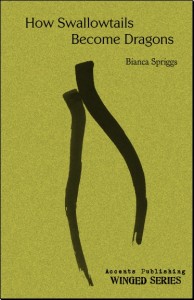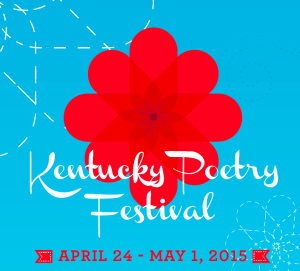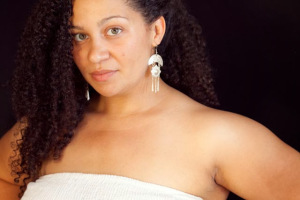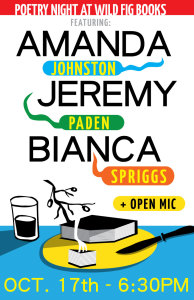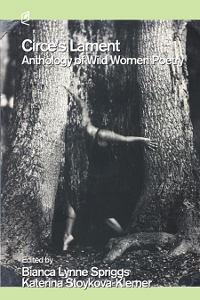 Edited by Bianca Spriggs and Katerina Stoykova-Klemer
Edited by Bianca Spriggs and Katerina Stoykova-Klemer
Circe’s Lament is an exciting new anthology of poetry about wild women. Poets from around the world have contributed narratives and given voices to an amazingly diverse female cast—women who neither flinch nor apologize, and who mesmerize us generation after generation with their strength. We invite you to welcome the wild into your home with this anthology.
What others say about Circe’s Lament
Circe’s Lament collects work by some of the best poets writing today—from Ellen Bass to Frank X Walker—in celebration of the wild feminine: the fierce, the furious, the bruised and battered, the hilarious, the mythical, the stereotypical, the fairytale turned inside out. Here you’ll find Miss America and Janis Joplin, Barbie and Medusa, along with—in Nickole Brown’s stunning and tender homage—a grandmother who can cuss up a storm and uses “fucker” as a term of endearment. The women in these poems behave in the most unladylike ways—swearing, sexing, drinking, dancing, hitting back, running away, bleeding, broke and broken. But just when you might start to think this celebration of “the bad girl” is veering toward romanticizing her, comes a poem like “The Girl,” by Linda Casebeer—as heart-breaking and frank and true a poem about being young and female and vulnerable and tough as I’ve ever read anywhere. Read it and weep. And be grateful for the work these editors have done to bring these voices to us.
Circe’s Lament is a collection of powerhouse poems by women that make you want to get down and growl. These aren’t poems for the faint of heart or the bashful. These are poems for the she-wolves. These are poems for the brazen hussies. These are poems for the wicked, the loud-mouthed, the ballsy, and the big-hearted. Lean in and listen closely. They’ll teach you how to bite.
Authors
tina andry, Britt Ashley, Stacey Balkun, Makalani Bandele, Bianca Bargo, Ellen Bass, Roberta Beary, Elizabeth Beck, Lauren Boisvert, Roger Bonair-Agard, Nickole Brown, Elizabeth Burton, Greg Candela, Linda Casebeer, Sherry Chandler, Sharon L. Charde, Lucia Cherciu, Elizabeth Cohen, Star Coulbrooke, Barbara Crooker, Lucille Lang Day, Nancy Diedrichs, Joanie DiMartino, Laurel Dixon, Teneice Durrant, Meg Eden, Lynnell Edwards, Marta Ferguson, Ruth Foley, Sarah Freligh, Karen L. George, Kate Hadfield, Ellen Hagan, Gwen Hart, Lisa Hartz, Sheryl Holmberg, Karen Paul Holmes, Hope Johnson, Julia Johnson, Susan Johnson, Amanda Johnston, Marilyn Kallet, Penelope Karageorge, Diane Kendig, Karen Kovacik, Shayla Lawson, Emily Leider, Marsha Mathews, Andrew Merton, Teresa Milbrodt, Pamela Miller, Holly Mitchell, Maria Nazos, Sheryl Nelms, Jeremy Paden, Julia Paganelli, Tina Parker, Catherine Perkins, Kiki Petrosino, Sosha Pinson, Carol Quinn, Hila Ratzabi, Nicholas Samaras, Leona Sevick, Hilary Sheers, Dan Sicoli, Joan Jobe Smith, Bianca Spriggs, Alison Stone, Katerina Stoykova-Klemer, Victoria Sullivan, Mariahadessa Ekere Tallie, Sheree Renée Thomas, Jessica D. Thompson, Alison Townsend, Rosemerry Wahtola Trommer, Elsa Valmidiano, Frank X Walker, Amy Watkins, Patricia Wellingham-Jones, July Westhale, K. Nicole Wilson, Laura Madeline Wiseman, Debra Woolley, Jessica Wright, Katy Yocom
From the Preface
Women who break stereotypes and societal expectations continue to thrill our imaginations with how they did it. How did these women manage to balance their gender, sexuality, and power? Where did they find the strength to shoulder the consequences of rejecting the expectation of how women should behave? What do we continue to learn from the stories we tell one another of these icons, characters, and legends? What does a woman sacrifice in order to come into her own power? What does she mourn? What does she celebrate? This anthology seeks to answer these questions by highlighting the legendary, the local, the familial, and the self. It also explores the bigger question: Why do audiences continue over the ages to be spellbound by women who challenge and complicate convention?
Circe’s Lament should certainly not be read as comprehensive in terms of the narratives we chose to highlight, but rather treated as a summoning, as a kind of welcome table. We hope that as you read through this host of poetry about wild women—from the classic to the contemporary, from the legendary to the little-known—you’ll get the sense from their collective narrative that no woman ever needs to feel alone or exiled. It is our hope that you will read and celebrate, not just those highlighted in this collection, but all of the bold, bright, wild women in your own life.
—The Editors
Cover photo by Nadezda Nikolova-Kratzer


